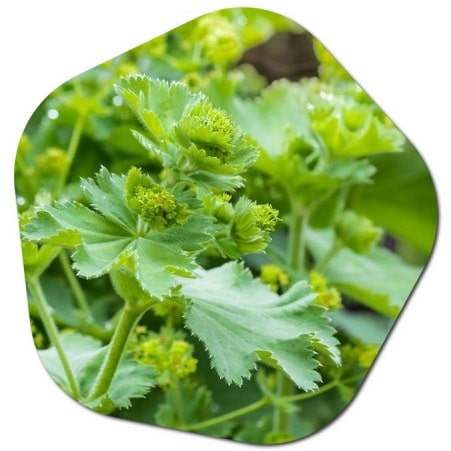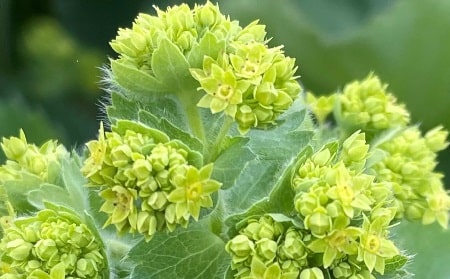What is the history of Alchemilla?
The Alchemilla plant belongs to the rose family. Lion’s claw, which grows in mountainous areas, can be seen in all seasons. The most intensively used place is Europe. The biggest feature of the lion’s claw, which was used as a blood stopper in ancient times, is to ensure blood clotting. Alchemilla is one of the medicinal plants with healing properties. Alchemilla plant, which can be produced in the form of both oil and cream, is very effective on skin health. Alchemilla plant can also be consumed as tea upon request.
Benefits of Alchemilla, Alchemilla plant; It is good for skin disorders. While preventing the formation of spots on the skin, it also helps the existing spots to pass. It is good for skin conditions such as inflammation, itching, irritation and redness. It repairs the skin and makes it look healthier and more vibrant. It has a very protective effect against other types of cancer, especially breast cancer, cervical cancer, ovarian cancer.

Are there Alchemilla benefits?
What is the homeland of the alchemilla plant? The Alchemilla plant, commonly known as lady’s mantle, is native to Europe and Asia. It can be found growing in various regions of these continents, including parts of the British Isles, Scandinavia, Central Europe, and into Asia. Lady’s mantle is well-adapted to temperate climates and can be found in a variety of habitats, including meadows, woodlands, and mountainous areas.
In addition to its native range, Alchemilla has been introduced and cultivated in gardens and landscapes worldwide due to its attractive foliage and delicate flowers. As a result, it is now found in various temperate regions around the world, including North America.

Lady’s mantle is known for its distinctive leaves, which are often scalloped and have a pleated appearance. The plant produces small, yellow-green flowers in clusters, and its leaves are known for their ability to capture and hold dewdrops, giving them a sparkling appearance. In both its native and introduced ranges, Alchemilla is appreciated for its ornamental value in gardens and its historical uses in traditional herbal medicine
- It is good for skin disorders. When used regularly, it shows improvement on skin blemishes.
- It is good for different types of cancer.
- It is good for liver health. It has liver cleansing properties.
- It is friendly to heart and vascular health.
- It is recommended for women during menopause.
- It helps to improve men’s sperm quality.
- Women with menstrual irregularities can use it.
- Helps strengthen the immune system. It keeps the body strong especially in cold weather.
- It is a medicinal plant that is also good for eye health.
- Helps regulate the digestive system.
Harm of Alchemilla
Alchemilla is good for many ailments in daily life, it also harms the body when consumed too much. Harm and side effects of the Alchemilla plant:
- It can cause discomfort such as frequent urination. This overtaxes the kidneys and may put kidney health at risk.
- Excessive consumption can cause vasoconstriction.
- The saw-toothed lion’s claw, known as a menstrual regulator, interrupts menstruation when consumed excessively. Therefore, it is useful to use it carefully.
- The saw-toothed lion plant, which has anti-inflammatory properties, causes the death of useful cells in excessive use, although it prevents inflammation. This can cause different ailments.
What does the Alchemilla symbolize?
Alchemilla, commonly known as lady’s mantle, has been associated with various symbolic meanings throughout history, often tied to its folklore, medicinal uses, and appearance. Here are some symbolic meanings attributed to Alchemilla:
- Femininity and Women’s Health:
- The name “lady’s mantle” suggests a connection to women. In medieval times, the leaves of the plant were thought to resemble the folds of a lady’s cloak, and it was believed to have properties beneficial for women’s health.
- Protection and Healing:
- In traditional herbal medicine, Alchemilla was believed to have healing properties, particularly for women’s reproductive health. It was used for issues related to menstruation and childbirth.
- Magical and Alchemical Symbolism:
- The name “Alchemilla” is derived from the word “alchemy,” reflecting a historical association with alchemical practices. Alchemists were interested in the plant’s dew-retaining properties, which were thought to have mystical or transformative qualities.
- Symbol of Purity and Virginity:
- The dewdrops that collect on the leaves of Alchemilla were considered to be pure and were associated with the idea of virginity. The plant’s appearance and dew-retaining characteristics may have contributed to its symbolism in this context.
- Garden Symbolism:
- In contemporary times, Alchemilla is often cultivated as a garden plant for its attractive foliage and delicate yellow-green flowers. In gardens, it can symbolize beauty, resilience, and the appreciation of nature.
It’s important to note that while these symbolic associations have historical and cultural roots, interpretations can vary, and personal or regional meanings may also influence how Alchemilla is perceived. Additionally, the symbolism of plants can change over time and across different cultures. Is the Alchemilla flower useful? >>





